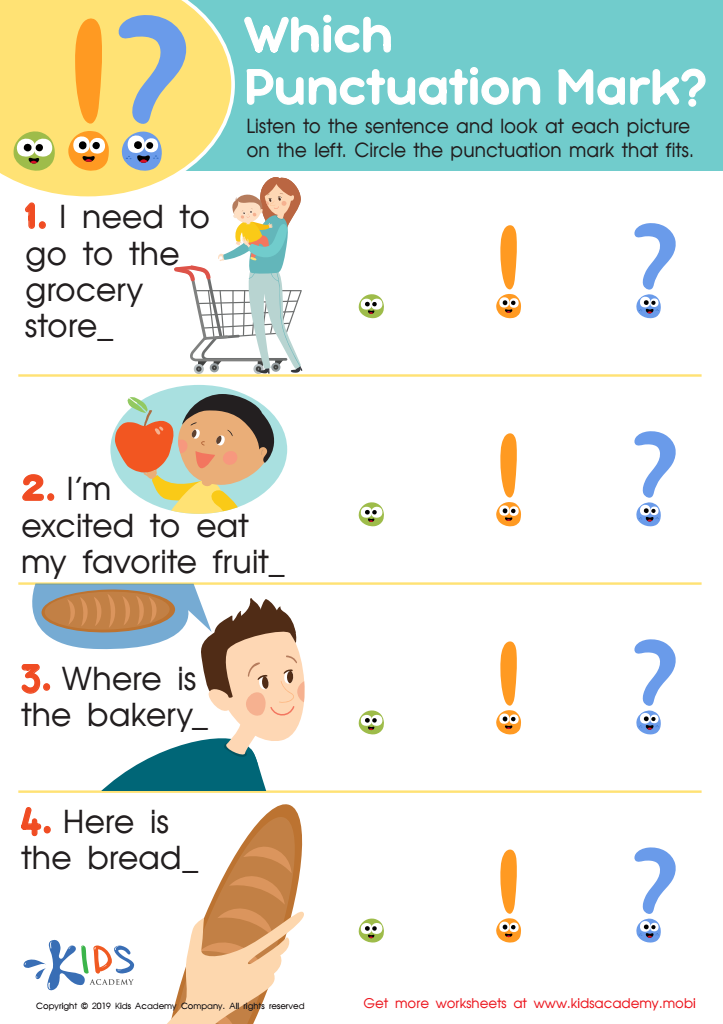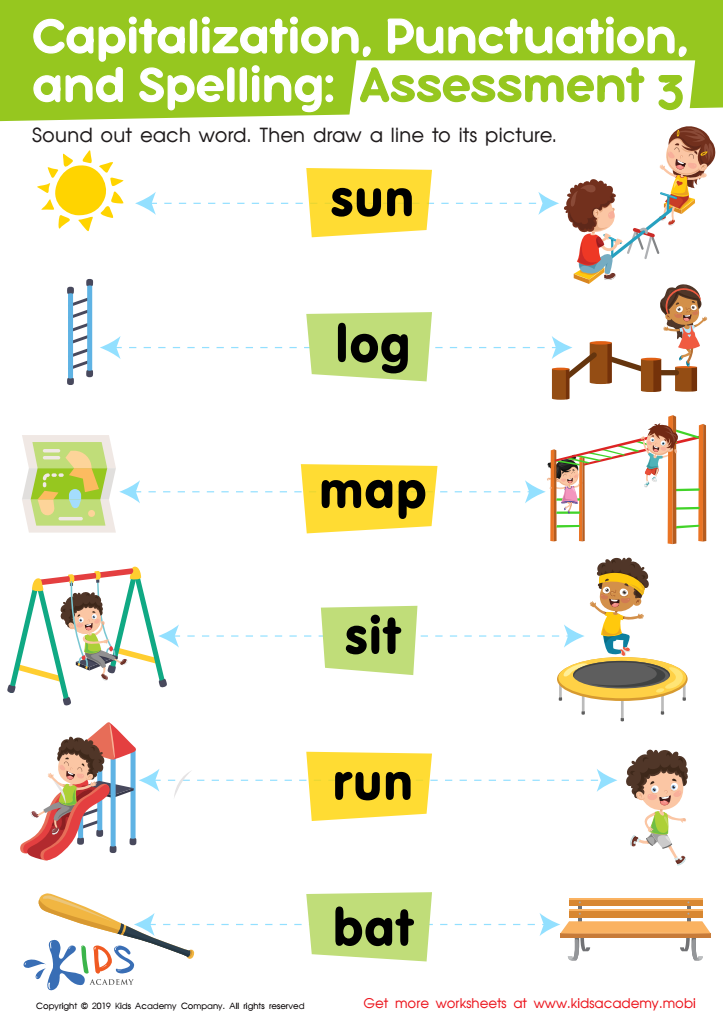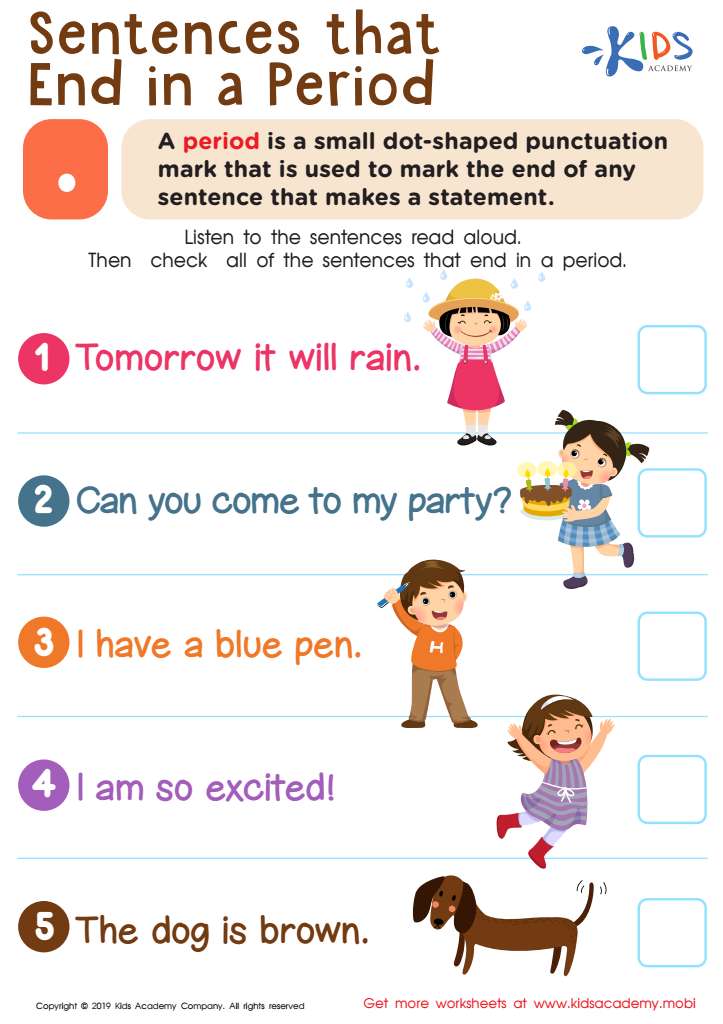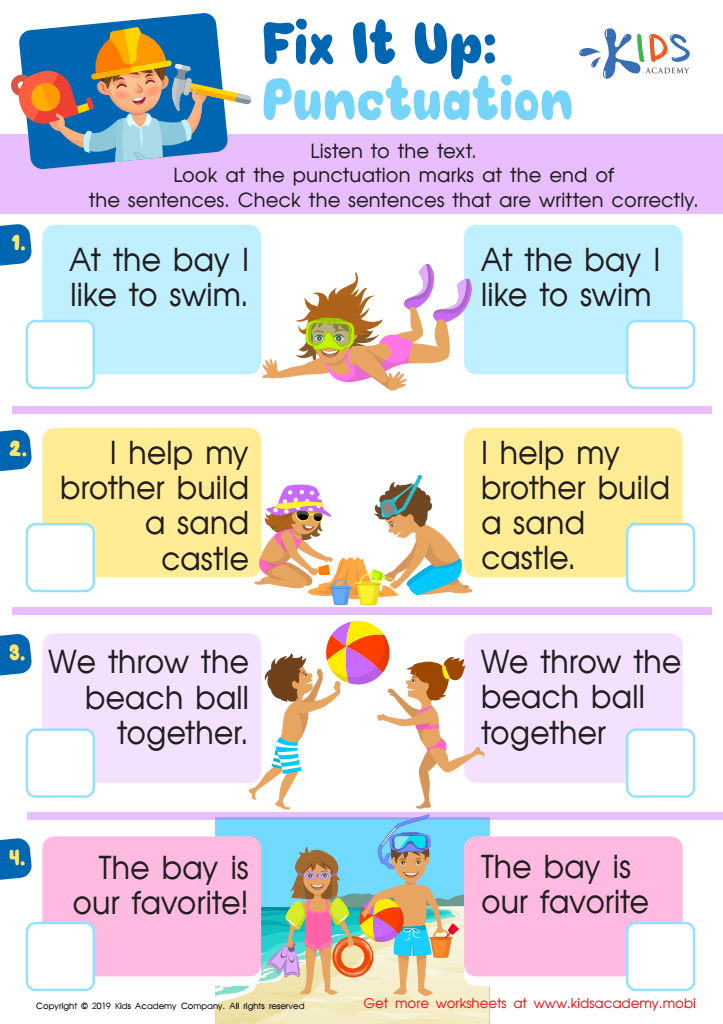Punctuation understanding Worksheets for Ages 5-6
4 filtered results
-
From - To
Explore our engaging "Punctuation Understanding Worksheets" designed specifically for children aged 5-6. These colorful worksheets introduce young learners to the exciting world of punctuation, helping them distinguish between periods, commas, question marks, and exclamation points. With fun exercises that include fill-in-the-blanks, matching activities, and sentence-building tasks, kids will develop essential writing skills while enhancing their comprehension and communication abilities. Our worksheets foster creativity and confidence in children as they learn the importance of punctuation in expressing thoughts clearly. Perfect for classroom use or home learning, each worksheet is aligned with early literacy standards to promote a strong foundation in writing.


Which Punctuation Mark Worksheet


Capitalization. Punctuation. Spelling. Assessment 3 Worksheet


Sentences That End in a Period Worksheet


Fix Punctuation Worksheet
Punctuation understanding for ages 5-6 is essential for several reasons. At this formative stage, children begin to grasp the basics of reading and writing, and punctuation plays a vital role in this process. Proper punctuation enhances readability and comprehension, providing children with the tools to express their thoughts clearly and effectively.
Without a foundational knowledge of punctuation marks such as periods, question marks, and exclamation points, children may struggle to recognize the rhythm and tone of written language. This can lead to misunderstandings in meaning and hinder their ability to convey emotions or ask questions appropriately.
Moreover, early exposure to punctuation can significantly boost children's confidence in writing. When they understand how to structure their sentences with the right punctuation, they can explore their creativity without the fear of being misunderstood.
Additionally, teaching punctuation fosters critical thinking skills, as children learn to make choices about how to express their ideas. Ultimately, both parents and teachers play a crucial role in this process, as their guidance and encouragement can cultivate a love for language that lasts a lifetime. Investing in punctuation education at this age lays the groundwork for effective communication skills as children grow older.

 Assign to My Students
Assign to My Students




















